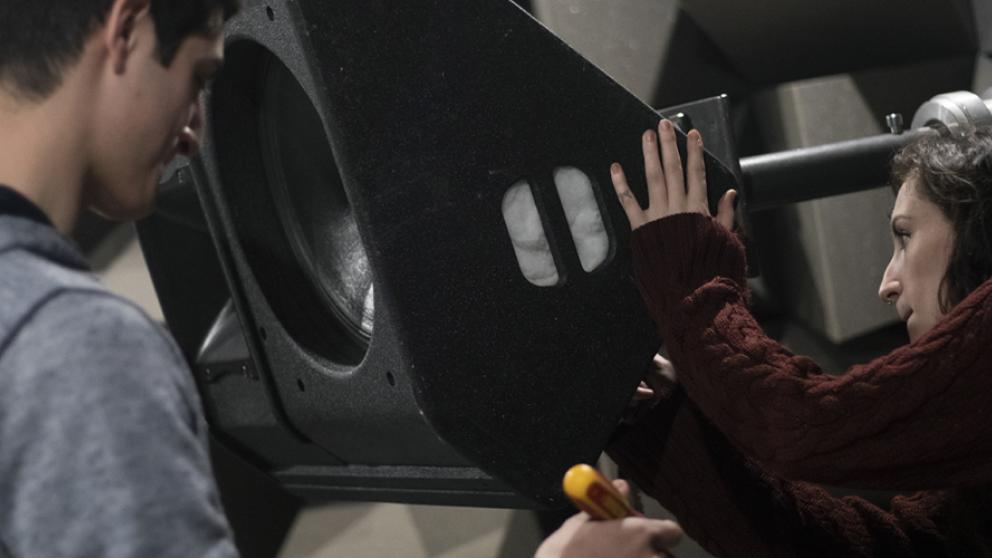Studying Acoustics and Audio at Salford
Our acoustics and audio programs offer hands-on learning with world-class labs and studios. Students gain access to facilities like anechoic chambers and Pro Tools-enabled suites, plus support for securing industry placements. Graduates pursue careers in engineering, production, and consultancy with companies like Apple, Dolby, and Jaguar Land Rover
Get ready to study acoustics,audio and sound
Congratulations on your offer to study at Salford - we've got so much more to tell you!
To help get you ready for study this September, we've put together some info about how you will study this fascinating subject, what to expect in year one and share answers to some of the top applicant questions.
Remember, if you have any questions about your application, you can email enquiries@salford.ac.uk, or call us on +44 (0)161 295 4545.
Find Out More About Our Programmes
BEng (Hons) Acoustical and Audio Engineering
BEng (Hons) Acoustical and Audio Engineering with Foundation Year
BSc (Hons) Sound Engineering and Production
Offer Holder Hub
Visit our Offer Holder Hub to explore more about student life at Salford.
If you have any questions not covered on these pages, you can contact our friendly team at enquiries@salford.ac.uk, or by phone on +44 (0)161 295 4545.
Top applicant questions - answered!
What facilities will I have access to?
Depending on your course, we have a range of world-class facilities for Acoustics, Audio and Video students to access. Our Acoustics Laboratories, for example, have a range of specialist test environments, from an anechoic chamber to transmission suites and reverberation chambers. Our MediaCity campus is home to our Audio Production suites and TV Studios, providing students with access to multi-million pound Pro Tools enabled studios, 3D animation suites, post-production software and more!
Will the university help me to find work experience and industry placements?
Whilst students are responsible for securing their own work experience and industry placements, our tutors will guide and support you through the process. Industry experience not only enables you to apply your knowledge in real-world situations but allows you to form those vital connections early on in your career. We have links with a range of leading organisations and, where possible, will assist students in securing placements.
Where have students done their placements in the past?
With a huge number of relevant work placements available, students across our acoustics, audio and video courses have secured placements with a variety of organisations, with some completing multiple placements throughout their time at university. Hear from BSc (Hons) Acoustical and Audio Engineering student Antonio about his placement experiences.
What careers will be open to me when I graduate?
Each of our acoustic, audio and video courses will prepare you for a range of vocational careers across the audio and media industries. Graduates from these courses often progress into roles including studio engineer, broadcast engineer, product developer, acoustics consultant, gaming audio engineer, technical engineer, media technician, colourist, and MCR gallery operator. Course alumni have gone on to work for companies including Apple, Dolby, Arup, Bang and Olufson, Jaguar Land Rover and Salford City Football Club.
Will we have access to the recording studios whilst we're studying?
Yes, we have an online booking system for students to reserve studio time. It's completely free and we always encourage students to bring any bands in to record.
What will my timetable in first year look like?
In first year students will have about 20 contact hours per week split over four or five days. It will be an equal mixture of lectures, labs and tutorials. There are no lectures on a Wednesday afternoon then so that students can participate in clubs, societies and extracurricular activities.
Is there anything you recommend I do over the summer to prepare for starting in September?
Start listening to music and watching films with a critical ear - listen out for what you think works and what doesn't. If you want a good book to read, we recommend "Sound Recording" by Francis Rumsey for all three of our Audio courses.

